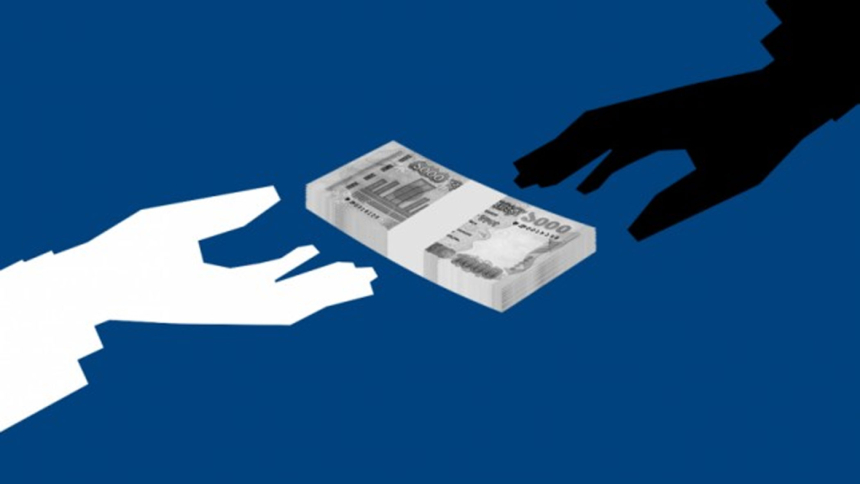The ‘dalals’: How essential are they?

The other day I was chatting with Abu, a long-time friend of mine who has been living in Bangladesh for the last one year. As a dual citizen of the United States and Bangladesh he was considering getting a "No Visa Required" (NVR) visa stamp for Bangladesh. However, he was debating whether to go to the passport and visa office in person to submit the application or send in a proxy. Being the courageous soul that he is, against the advice of his well-wishers he wanted to get the job done in person (as well as to get a taste of our bureaucracy). He proceeded to the government office with his nephew and stood before the responsible official, expecting it to be a 30-minute chore. The scenario he had in mind was the following: Step 1. He would present the paperwork to the officer with the required fees and make a point or two in favour of his case. Step 2. The officer would take a cursory look at his documents, take it under advisement, and ask him to come back within a day or two. Step 3. He would go back or have his nephew go back to collect his US passport and bring it back to him with the NVR stamp.
Unfortunately, the aforementioned scenario did not work out along the tracks I outlined above or as he had expected. The moment he entered the responsible official's studio, he noticed that there was a slight irritation visible on the latter's face. He turned the passport over a few times ostensibly to check the authenticity of the passport and started leafing through the pages. Abu is very well-travelled and before he went to Bangladesh late last year for some family and business matters, he crisscrossed the globe going from Latin America to the US and then to Southeast Asia. Accordingly, he had pages after pages of visa stamps, airport seals, entry and exit attestations. Abu stared on nonchalantly as the clock ticked, not paying attention to the glances exchanged between the officer and another person sitting there. Eventually, the other person spoke up and with a little bit of frustration in his voice said to Abu, "Sir, why did you have to take all the trouble to come here in person? If you had just sent your assistant, this matter could have been taken care of within a day", and pointed to his nephew who sat there with a worried look on his face. Abu did not have a clue what was going on until the officer finally said, "Everything seems to be in order." Abu finally breathed a sigh of relief. But his throat went dry in a minute when the officer added the sequel. "Well, you see. Your case requires further evaluation, and it might take a bit more time since we are swamped with cases like this. Leave this with me and we'll contact you. What's the best number to reach you at?"
Before Abu could answer, the fourth person in the room said to him, "Sir, no worries. Let us go outside and straighten out the matter. It can be arranged." Taking a hint, Abu and his nephew thanked the officer and soon found themselves discussing the fees that could expedite the matter. "Sir, bujheni to, boro shahebra kaaj kulaiya uthte parche na" (translation: As you understand sir, the officers have a heavy load and are having a hard time keeping pace with the cases"). Fortunately, Abu took the hint and paid an agent to get the job done for a "flat fee".
Later Abu learned that if he had stayed out of the scene, the NVR process could have gone much faster. Since visa agents know the ropes, he was advised that in future, he should let an agent, a middleman or a "dalal" handle these matters since they know the officials and for a flat fee easily navigate through the "labyrinth of officialdom" (Abu's words). "No hassle, No questions need to be asked or answered", Abu emphasised to me. He heeded the advice the next time and for a matter that needed a customs office clearance, he let the agents handle the job on his behalf for a flat fee.
"Hey, what is an extra 50 dollars or so when you can rest in peace and get an expedited resolution. I would rather have my passport back in my hands today rather than worry about its whereabouts for weeks while they 'evaluate' and send it for police clearance!", he said with a tinge of irony and sarcasm in his voice.
I must admit that I was not too surprised by Abu's account of the bureaucratic shenanigans and the role of the middleman in the system. I have myself faced similar situations in government offices in Dhaka, but also when I was travelling out of Dhaka and had to get visas from the US or Indian Embassies in Dhaka. The lines were long and a little extra cash saved you time and energy on a hot or rainy day when you might have to stand for hours just to get a "serial number". In recent years, every time I was in Dhaka and wanted to pay my mother's Municipal Tax or electric bills, I always kept extra cash in hand, just in case I needed to grease some palms. After my mother passed away, we had to go through a similar process of hand-wringing and cash dole-outs to get the "mutation" and other issues relating to her apartment resolved. I keep on hoping that things would get better with time and economic development. After all, many other countries went through a similar process and there is a negative correlation between bribery and extortion and per capita income.
It was always true that a certain percentage of any contract would go to the government officials, the bankers, autonomous bodies, etc. There was a story circulating many years ago, during the Ershad-era, about the entire budget for a bridge over a canal being pocketed by the C&B, PWD, Union Parishad leaders and local political groups. I was hoping that such cases or jokes have now become out-of-fashion.
The question we ask is: Are incidents such as the one my friend described to me happening very often or is it a flash in the pan? Also, what is the percentage of development resources that is being pilfered away like this? How do the poor who have no resources suffer from this practice of "taking a cut" or rent-seeking? Do they also have to pay the flat fee or are they left by the wayside?
For an economist, the important question is, as we try to promote Bangladesh as a business-friendly country and attract foreign businesses to relocate here, what has been the experience of the expatriates or a prospective investor exploring the business environment nowadays? If Abu, who has travelled to over 80 countries during his career as an international bureaucrat and speaks Bangla fluently, was totally flabbergasted by the degree of red-tape, extortion, and bribery prevalent today in December 2020, what does that tell the rest of the world about us?
Years ago, a scholar commented in a Harvard Business Review paper on China, "Sure, labour is inexpensive in China, but what about dealing with government bureaucracies or resolving long-distance logistics breakdowns? We can't begin to see all the hidden costs." President Xi, after he came to power in 2012, launched a strong anti-corruption campaign "targeting officials in the party including both high-ranking officials ("tigers") and low-level bureaucrats ("flies")." For Bangladesh, we need to ask how much longer are we going to countenance the "facilitation payments" that we are forced to make for government services and put up with the "hidden cost" for doing business in Bangladesh?
Dr Abdullah Shibli is an economist and works in information technology. He is also Senior Research Fellow at International Sustainable Development Institute (ISDI), a think-tank based in Boston, USA.


 For all latest news, follow The Daily Star's Google News channel.
For all latest news, follow The Daily Star's Google News channel. 



Comments